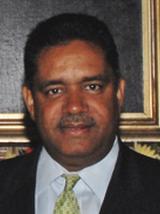ST THOMAS, USVI — Governor John de Jongh has sent a letter to Kathleen Sebelius informing the US Secretary of Health and Human Services that the US Virgin Islands has opted not to establish a heath care exchange.

As de Jongh announced earlier, in lieu of an exchange, the US Virgin Islands will apply federal funds toward an expansion of its Medicaid program, an option granted the territory under the Affordable Care Act, President Obama’s signature piece of health care legislation.
“While the ACA provides important health insurance reforms that will benefit Virgin Islands residents, the limited application of its provisions to the Virgin Islands and its insufficient allocation of Federal funds significantly limits our opportunity to expand health care coverage of the Virgin Islands uninsured through the Exchange,” de Jongh wrote Sebelius.
Because of the health care law’s limitations in funding and the exemption of some of its most-important provisions, including the individual mandate, to insular territories, a task force appointed by the governor concluded, after a comprehensive two-year study, that an exchange would not benefit the US Virgin Islands.
“Therefore, to maximize the available opportunities of the ACA, the Virgin Islands will use the ACA funding to directly expand its current Medicaid program for the purpose of decreasing the number of uninsured and as a component of that expansion will consider expanding the Medicaid services benefit package,” de Jongh said.
In the letter, de Jongh called attention to the “staggering health disparities in the territories and the disparities in how the territories are treated under the ACA and the Medicaid program.” He explained those disparities exacerbate the US Virgin Islands health care challenges.
The governor enumerated the specific factors and calculations that informed his decision to forego an exchange in lieu of Medicaid expansion.
The Health Reform Implementation Task Force appointed to study the issue concluded there were significant financial and structural roadblocks to establishing an exchange for the territory — many due to the disparity in the law as it affects insular US territories. At the same time, the option of accepting additional funding for Medicaid could immediately begin to help the most vulnerable of uninsured US Virgin Islanders: young children and pregnant women.
Because the individual mandate, a key provision of the legislation, does not apply to insular territories, the pool of exchange participants would be limited, making it unlikely for insurance carriers to offer affordable coverage through the exchange, the task force concluded.
The task force estimated it would cost the US Virgin Islands $251 million over the next five years to provide necessary subsidies, while the territory was only receiving $24.9 million in one-time federal funding. The territory also lacked the state-of-the-art information technology system that the exchange required. At the same time, no US state expressed interest in partnering with the territory to establish a multi-state exchange.
The approach de Jongh has chosen affords the US Virgin Islands added flexibility in using its $24.9 million Medicaid allocation. With that funding, the Department of Human Services will pilot an initial phase of expansion for pregnant women and children by raising the income eligibility level for those groups this August. Projections indicate that measure alone would allow 3,700 children to become immediately eligible for coverage, as well as 200 more pregnant women.
“In summary, while we are unable to pursue an Exchange, it is our commitment to expand coverage and services provided by the resources that ACA and Medicaid has made available,” de Jongh wrote the Health and Human Services secretary.
